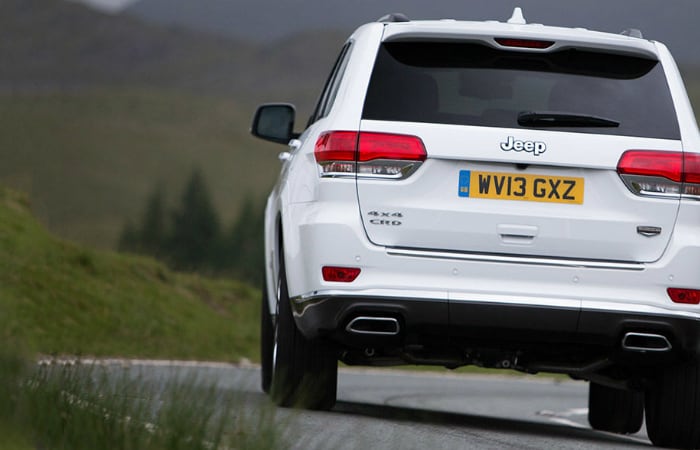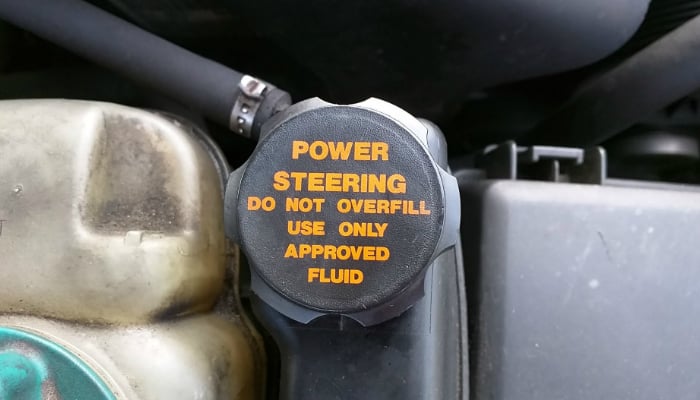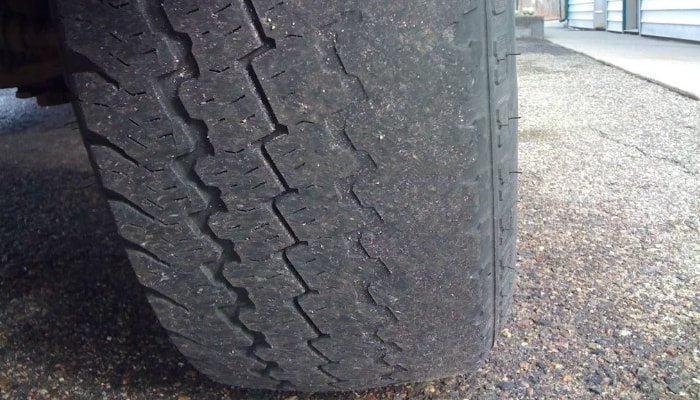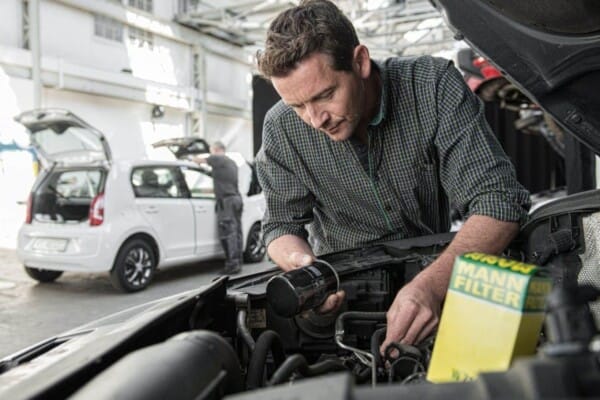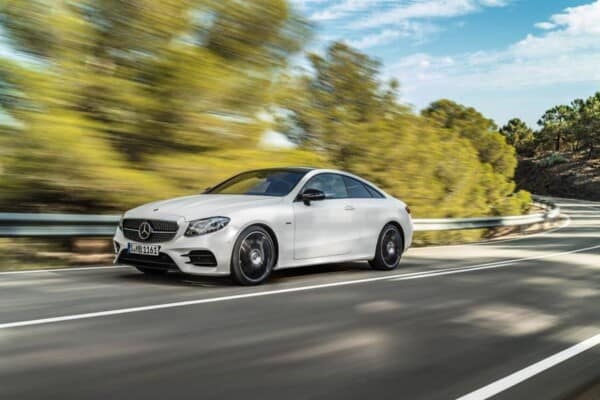Hearing an unusual sound whenever you take your car out for a drive is alarming. The internal system of cars is so complex that one small malfunction can affect the whole structure. One example is when a car releases a squealing sound once you turn the steering wheel while driving. Usually, there is just one simple reason for this despite several possibilities available. In case your vehicle will start to make strange noises while you are behind the steering wheel, find out right now why a car squeals when turning.
Power Steering Fluid
There are two factors why this certain fluid can be the reason why a car squeals when turning.
Low Amount
This is one of the main causes why a car squeals when turning. This must also be the first thing you have to check. As you can see, there is a special fluid in lubricating and powering traditional systems for power steering. Once the amount of this fluid decreases, the car disturbingly squeals as soon as the steering wheel is moved to the side.

How can we solve this issue? You just have to check the amount of fluid available and add more if it is really the cause of the problem. However, it is also possible that there is a hidden leak. Better consult a professional for that.
Contamination
Debris and dirt can actually contaminate the power steering fluid. Instead of adding more fluid, you have to replace it. You may consult a mechanic if you are not sure about how to replace the dirty one.
Damaged Power Steering Pump
Aside from fluid for power steering, the pump can also be a factor on why a car squeals when turning. One reason for a malfunctioning power steering pump can just be the low amount of fluid. Adding more fluid can be the solution. But if the problem remains after that, you should consult a technician.
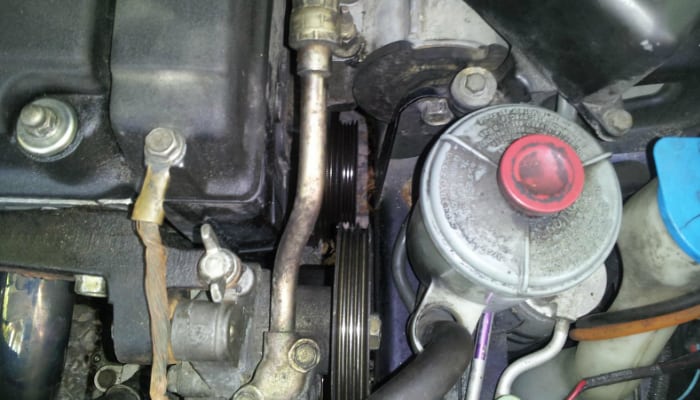
Damaged Belt
Going further regarding power steering, there is a belt providing power to this system. An overused belt can slip and affect the pressure of the fluid coming from the power steering pump. In worst case scenarios, a broken belt contributes to the malfunction of the power steering pump. The end result is an extremely heavy steering wheel.
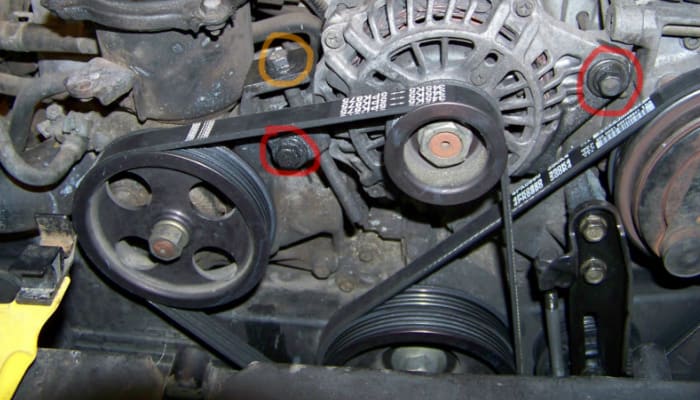
Dry Steering or Suspension Component
Suspension components such as universal joints, ball joints, seals and tie-rod ends must be lubricated at all times. If one of them is dry, it can contribute to noise whenever the steering wheel is moving.
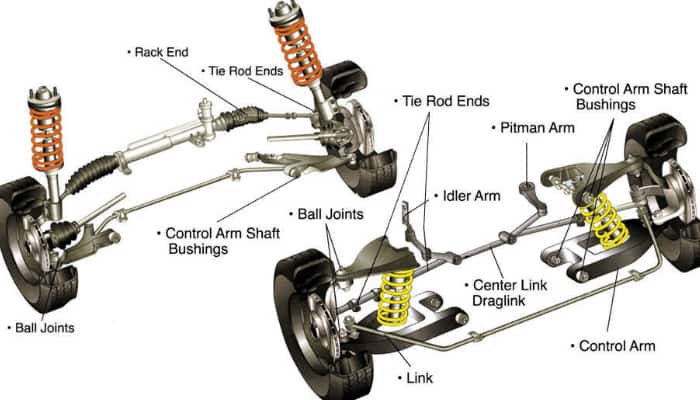
Interior Rubbing
It is possible that the steering wheel housing can rub against the interior trim. This is a real thing for some new cars. The most common reason of contact is hot temperature, normally caused by weather. With hot temperature, the parts become bigger due to expansion leading to the closure of necessary gaps.
Now, what must be done to solve this? You have to take your car to a body shop or the dealer. Try to use the car’s warranty privileges.
Normal Tire Sounds
Tires are expected to produce noise when they suddenly make contact to some surfaces. Slowly turning the car in a small area like the garage and on painted floors normally produces squeaky noises because of typical tire slippage. These surfaces are way more slippery than asphalt.
Tire Issues
Of course, tires are also susceptible to problems which can be a part of the reasons why a car squeals when turning.
Underinflated
Let’s start with the most common factor. Underinflated tires create so much squealing noises while the car is turning, especially at sharp corners.
The solution for this is quite easy. You just have to go to the gas station and fill the underinflated tire with air. Thankfully, air fills are so cheap. If you do not have a tire pressure gauge yet, purchase one now to ensure that your tires are not overinflated. Overinflated tires can deteriorate the quality of your wheels fast.
Damaged Tread Wear
The second common problem of squeaky tires is uneven tread wear caused by heavy use. Eventually, your tire’s tread wear will deteriorate if you drive a lot, especially on harsh roads. Types of deterioration are dullness and peeling. Uneven depths and patterns around the tread wear are not good for the tire.

Tread wear is essential for a strong grip. Once the grip weakens, turning and even braking your car becomes a hard thing to do. We recommend that you let the pros balance and rotate your car’s tires often as part of maintenance.
Loose
Loose wheel bolts or covers do not happen as much as damaged tread wear and underinflated tires. However, it is possible if you always hit big bumps on the road. The first thing that gets loose is the lug or bolt before the wheel cover does. Once the wheel cover loosens, it creates friction with the tire.
The solution is simple: the bolts just need to be tightened once again. The mechanic may also check the wheel cover if it is already starting to get loose.
Other Types of Noises
There are different noises that can be heard from faulty cars. Interestingly, these noises can be categorized since a specific sound may signify a certain issue.
The squeal is the same with whine and screech sounds. They are similar because they can indicate problems with the power steering system, especially with the fluid, pump and belt. Meanwhile, hum probably tells you that the wheel bearing is deteriorating. This is something that needs an immediate solution.
On the other hand, clicking and crunching sounds may indicate a damaged CV joint. You need to replace it. Also, ringing or metallic grinding noises signal you to replace a brake component such as rotors and pads. Lastly, creaking, clicking and clunking sounds can indicate deteriorating tie rods, ball joints, suspension bushings and shocks.
Summary
A squealing car while turning does not automatically mean that you have a problem with your vehicle. Sometimes, it’s all because of the surface which is normal because of friction. However, keep in mind our list of reasons why a car squeals when turning. Once you hear a weird squeal, remember to check the power steering fluid first. It is better to be safe than sorry, so stay vigilant with your car.
For an even smoother turn, you can purchase the best car steering wheel cover for you and your vehicle. This type of product ensures that you have a more secure and comfortable grip to let you control the car better, especially when you need to make sharp turns.

